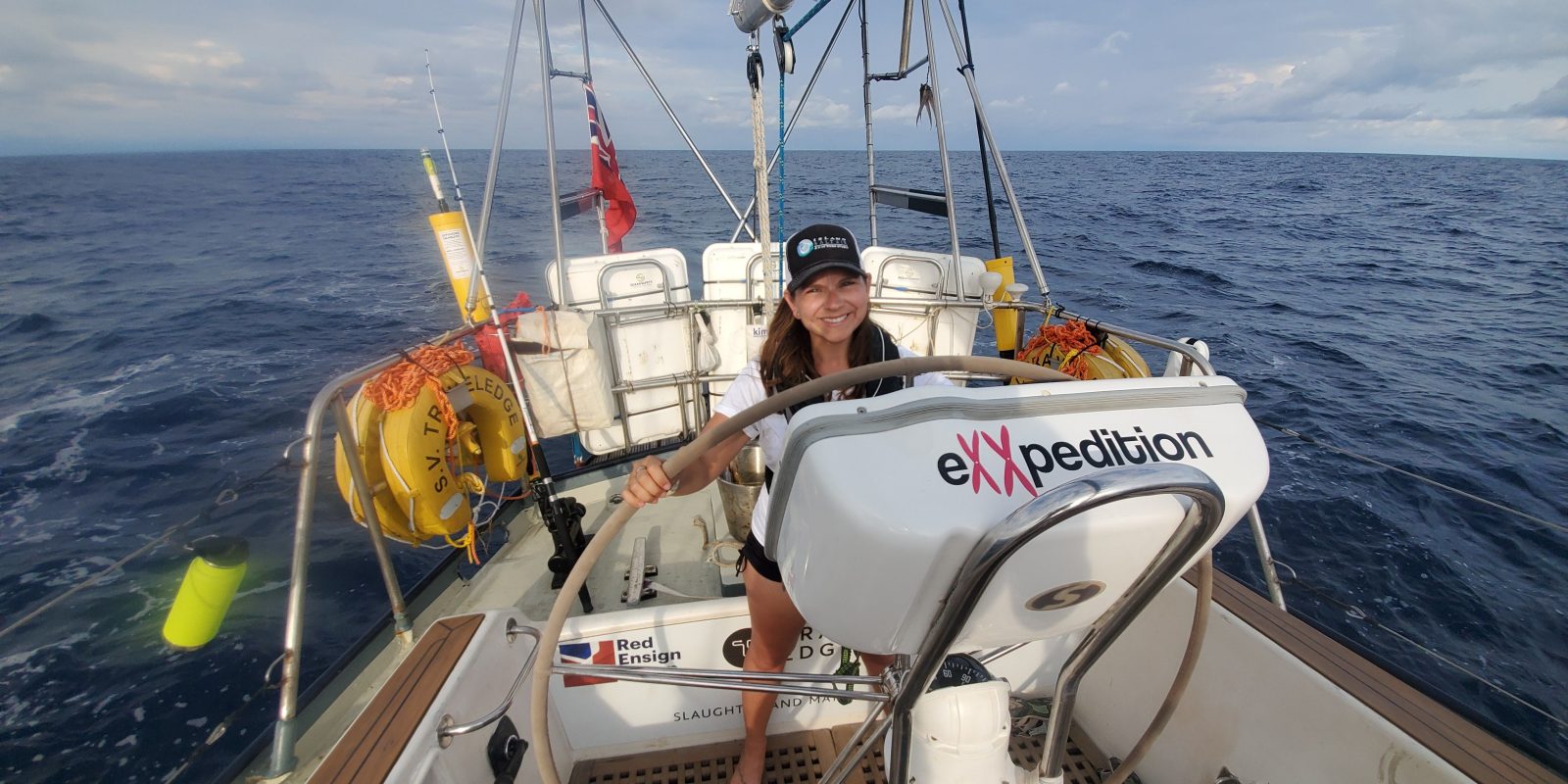Meet Sasha Francis, eXXpedition Round the World Leg 6 crew member. As part of our Ambassador Spotlight Series we wanted to share Sasha’s Superpower Story.
Can you tell me a bit about yourself?
I grew up in what we call the Ocean state (Rhode Island, USA). It’s very small but surrounded by water. Raised by a nature-loving single mother, my vacations were all affordable camping, beach days, or visits to local parks and zoos. This inspired me to become a Zookeeper. After receiving a Bachelor of Science degree in 2007 and interning at the Bronx Zoo, I began my career in animal care and public education. I cared for Beluga whales, seals, sea lions, penguins, tigers, parrots, birds of prey, sloths, and more. Through the zoo and aquarium field, I have been able to educate thousands of guests about the growing threats animals face in the wild while also participating in ongoing research and conservation initiatives.
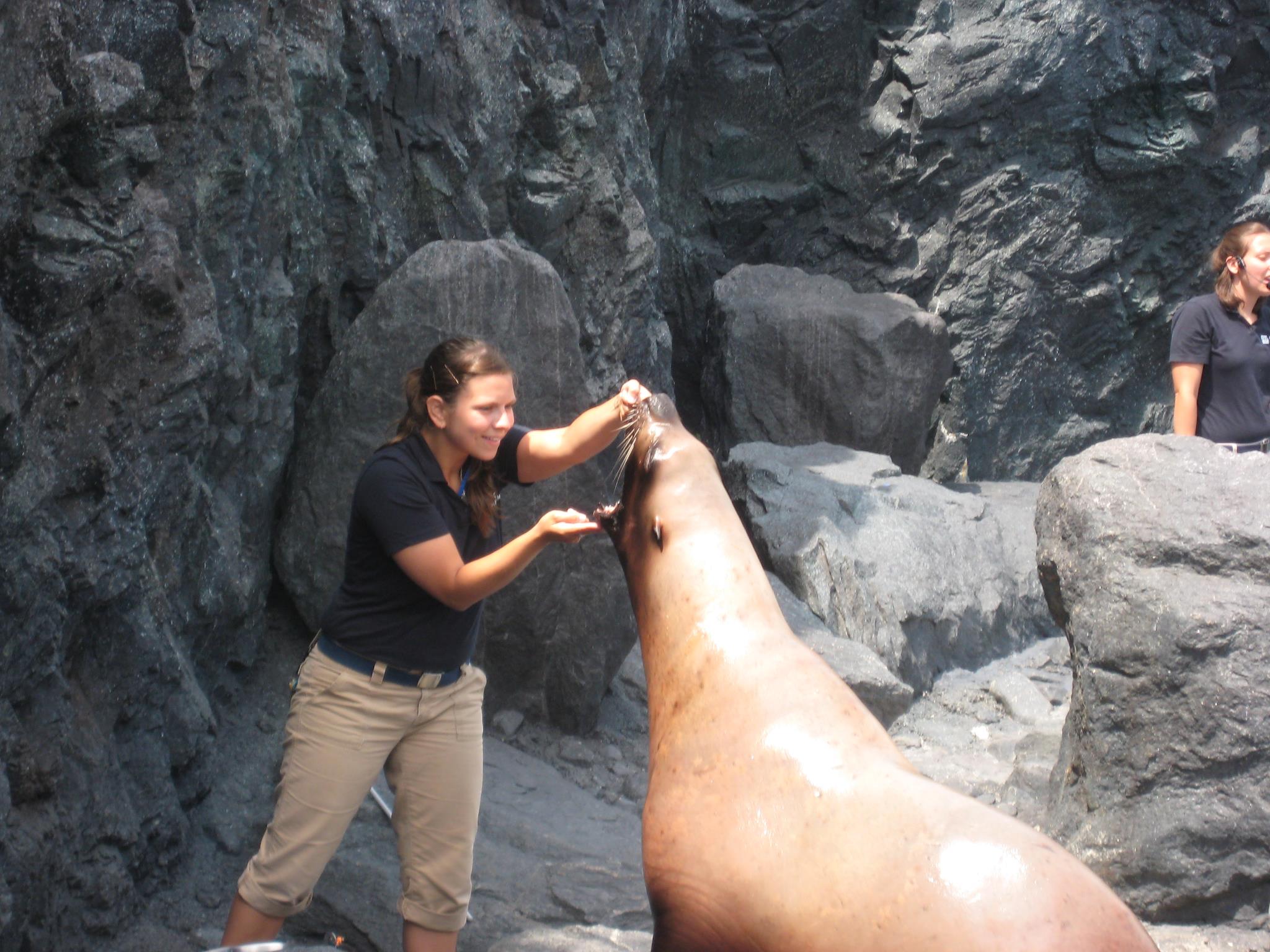
After about 12 years working as a zookeeper, I decided I wanted to protect wildlife in a different way by working for a local non-profit conservation organisation. I applied for various positions at the Galveston Bay Foundation and was overjoyed when I was offered the role of Community Engagement Coordinator. In this role, I go out into the community to teach them about the work our organisation does, share data about the local ecosystem, discuss what issues it faces and empower people with information and resources to help preserve it.
How did you end up sailing with eXXpedition?
Working around marine mammals and seabirds especially, it was very obvious that they are some of the top victims of ocean plastic pollution. Getting to know the species and just how incredible they are, I became individually very passionate about protecting them. I was already interested in changing my own behaviour and making an impact so I became that person that gave others advice on things they could try to avoid plastic. I happened to see a Facebook ad for eXXpedition so I applied. I was really excited by the opportunity because it was a personal passion as well as being very connected to my work.
What did you learn about yourself during your voyage?
Most people think about their skillset in practical terms. But that’s not really your true skill set. I realised that I have a lot to offer by just being myself. Everybody on the boat recognised that their personalities and compassion can contribute far greater to the conversation than their actual profession.
“Your best skill is your own personality.”
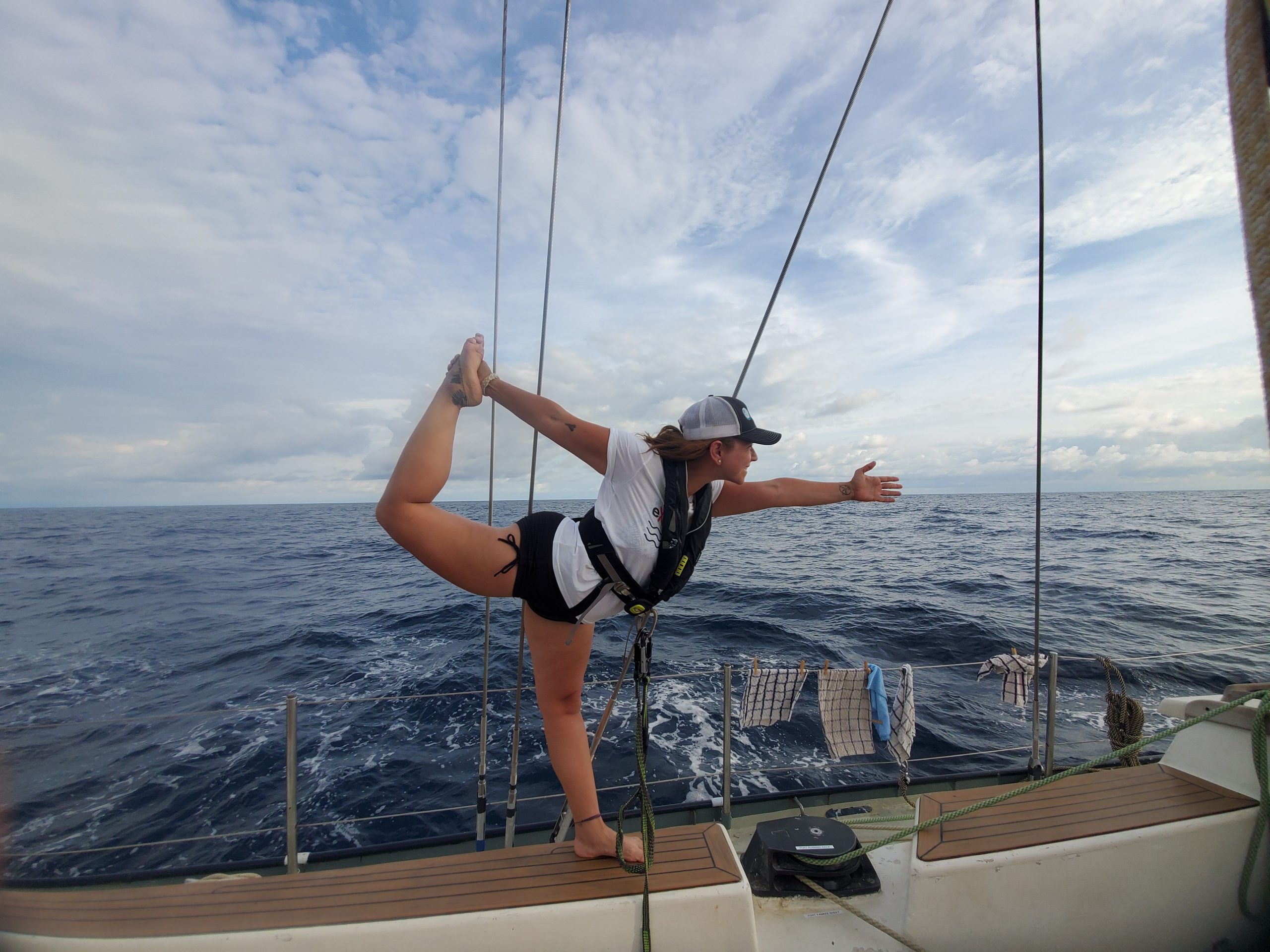
What is your superpower and how has it helped you make an impact?
I’m told it’s my ability to easily and genuinely connect with anyone. My supervisor calls me the resident extrovert. She can throw me out into any group of people and I will find a way to connect and have an impactful conversation. I’ve always deeply cared about the environment and I also deeply care about people. I believe you need to care about and acknowledge the needs of both in order to make real change. The basic needs of people including food and water, shelter and access to healthcare and medicine must be addressed before many can consider making more environmentally friendly choices.
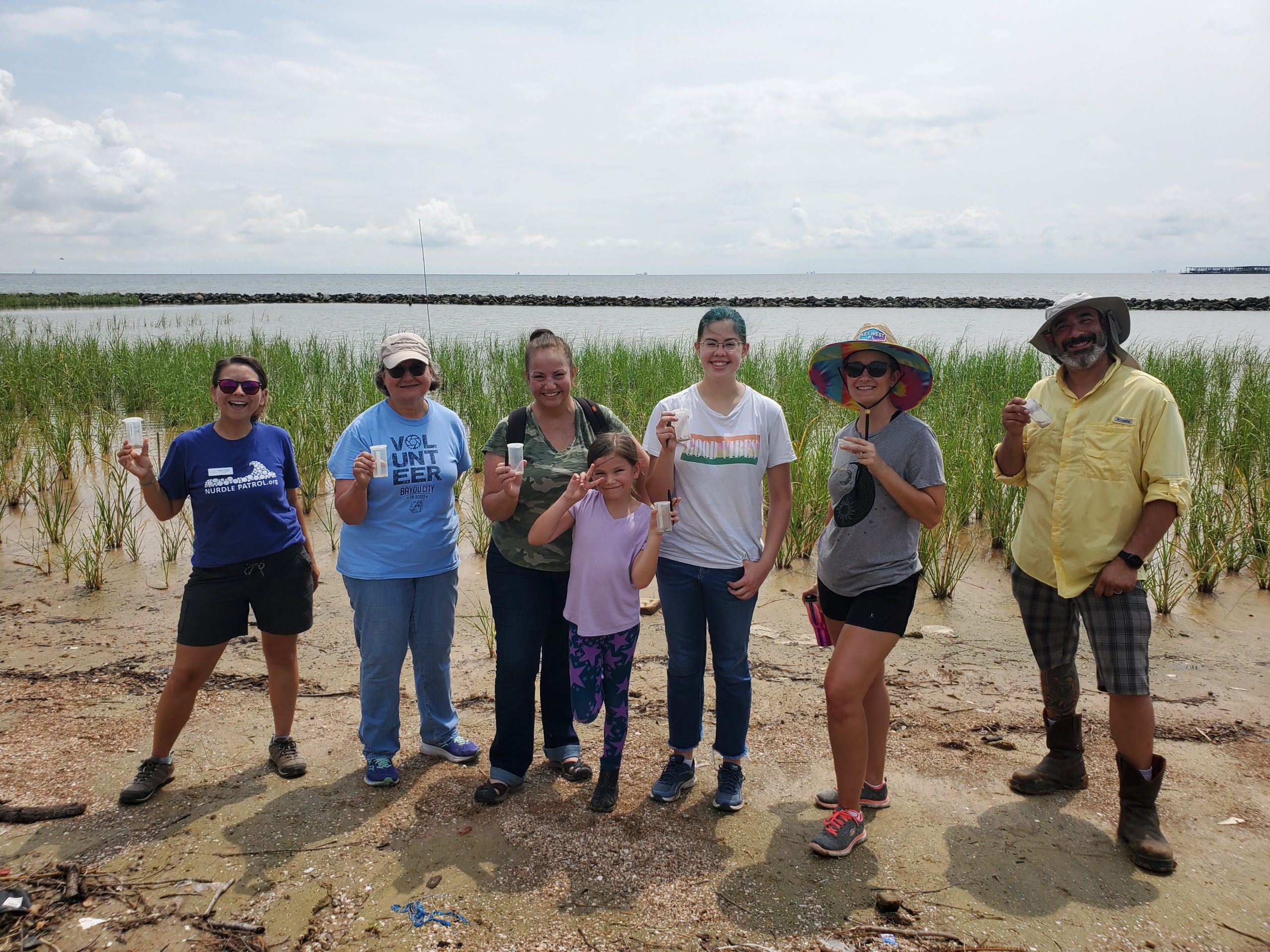
How has the voyage influenced your work since you returned home?
In my current role I talk about pollution and litter in Galveston Bay. Last year I started overseeing a marine debris programme. We work with volunteers every month to survey different shorelines and clean up a section of litter. We document what we find using data sheets and teach people how to use the Marine Debris Tracker. Both contribute data to important NOAA (National Oceanic and Atmospheric Administration) research. You can read more about our marine debris survey work around Galveston Bay here.
“The voyage reminded me that your profession doesn’t really matter, there are folks in all roles that care – you just have to find them, work with them and let them know that they’re valuable to your mission.”
I live near Houston which is famous for petrol, oil and gas refineries. Many people in our community work in those industries, or have family and friends who do. It’s really important as a conservation organisation that we don’t shy away from working with them because we are all connected. Galveston Bay Foundation has been working with different industries on community outreach and marine debris projects in the cities where the refineries are. We’ve been very pleasantly surprised by how much some of the staff members care and want to be involved.
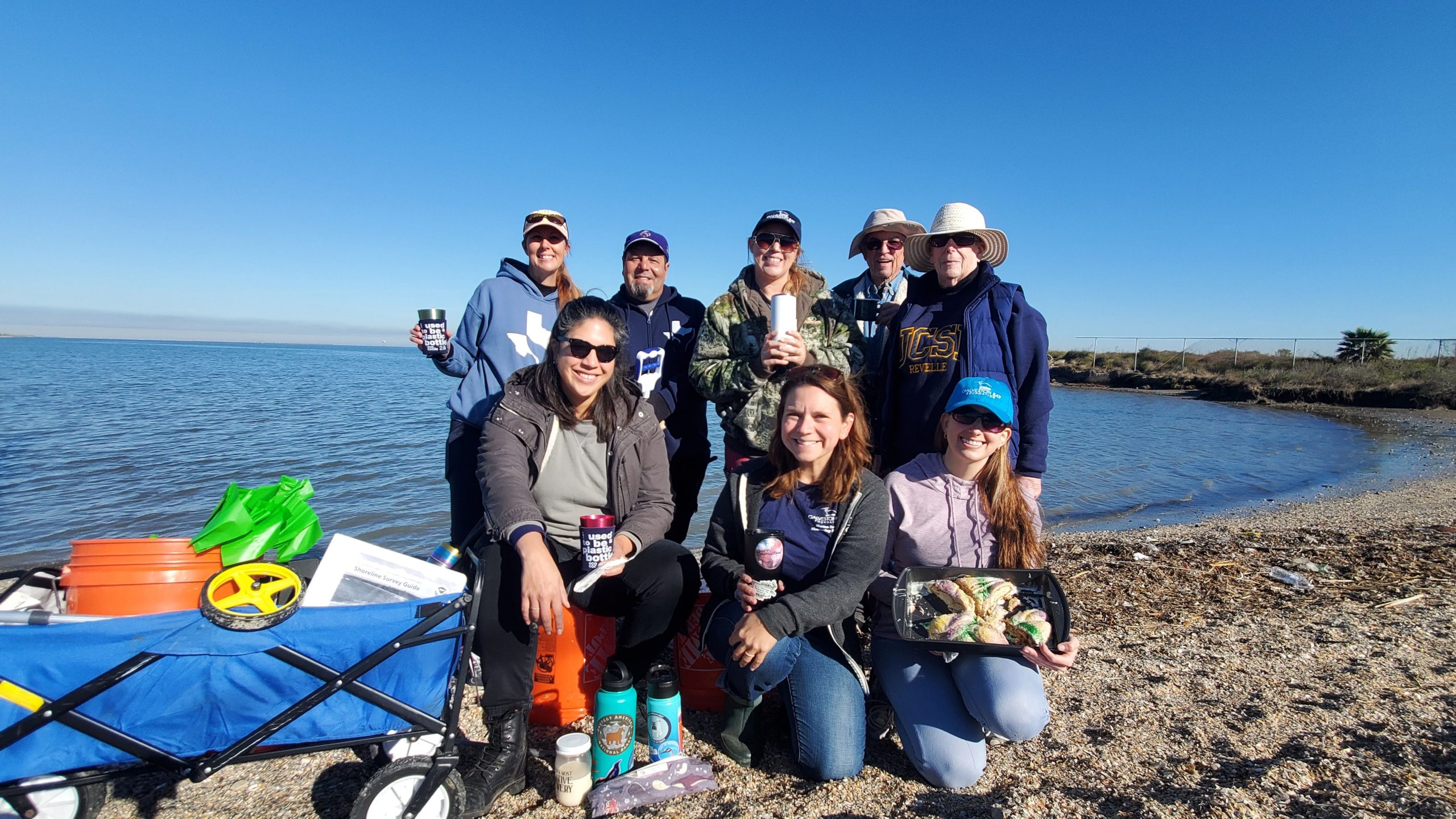
What are you most proud to have achieved?
Honestly, having my family and friends be proud of my little victories means a lot to me. My family is proud of the passion I have for what I do. Seeing them listen to a podcast I’ve done and looking to me as a resource for sustainability is really cool. Inspiring them is a great feeling.
What are your plans going forward?
I want to keep learning and reminding people that while I’m a resource, I’m always learning too. It’s important for everyone to realise that change happens and it’s ok to acknowledge change and keep learning about different policies, research, inventions etc.
There are areas of the community that are disproportionately affected by industry here. A big part of our mission is to talk about environmental and social justice and to move forward in that area and make sure these issues are part of the conversation. We need to reach out to the community and find out what they need to break down the barriers and make sustainable choices. It’s also really important that we help connect them to industry so they can have those important and sometimes difficult conversations. I want to continue to push that envelope and make sure people from both sides see us as a resource to connect, break down barriers and make progress possible with all parts of the conversation being heard.
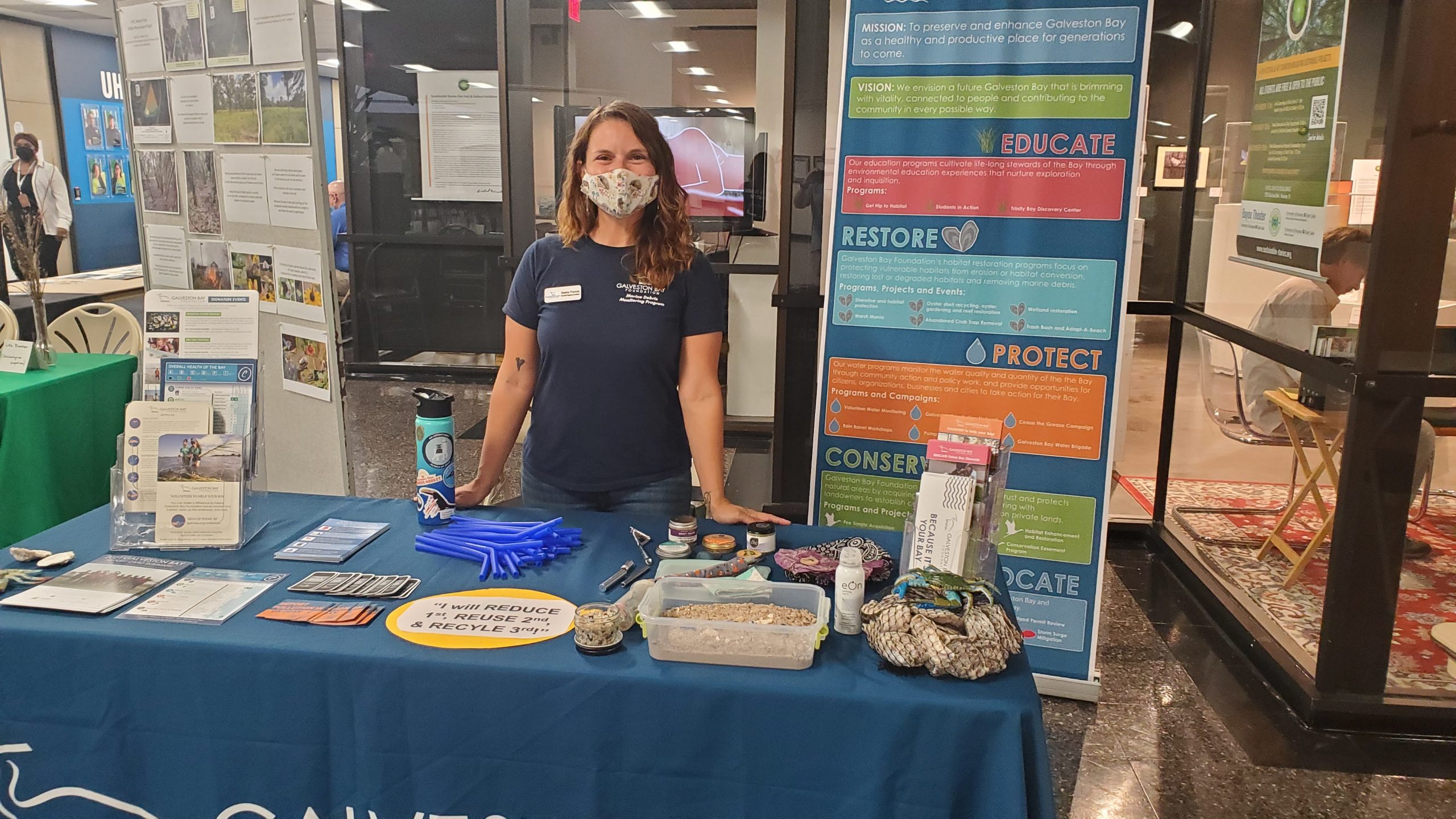
If you could give one message to the world, what would it be?
Every single person on the planet can contribute to either a problem or a solution. Your choices have more power than you think so not only is it about making choices that lead to solutions and not problems, but also recognising that each behaviour change can have an impact.
Educational videos and blog posts about sustainable alternatives can be found by searching “Sustainable Sasha” online or on the Galveston Bay Foundation’s YouTube channel.
